Yes, the West goofed up. But ISIS runs deeper: Jason Burke

Deja vu
- The Paris Attack confirms that ISIS now has a global strategy
- ISIS is doing the same thing that Al-Qaeda did earlier
Terror as tactics
- Violence is used to achieve many targets in one go
- Polarization will only further the objective of terrorists
More in the story
- How correct is it to blame the West for the violence
- What does the international community need to focus on
The ISIS attack on Paris a week ago left the world stunned. Ever since, the limelight has been on Daesh - its motive, modus operandi and murderous intent.
Jason Burke, The Guardian's South Asia correspondent, has reported extensively on Al-Qaeda and ISIS. He has also written significant books like Al-Qaeda (2003), The 9/11 Wars (2011), and, most recently, The New Threat from Islamic Militancy.
In a chat with Catch, Burke underlines the contours of the Islamic State's activities and the international community's reaction.
SC: Jason, you've written several books on the Al-Qaeda and, most recently, on the ISIS. How do you read the Paris attacks? What does it signal?
JB: At the most obvious level, the Paris attack is the clearest confirmation we have that the ISIS, or at least members of the Islamic State, have adopted what could be called a global strategy, involving direct acts of terrorism against primarily western targets.
Previously the ISIS' priorities were to consolidate and expand their territorial base in the area they're most interested in, which is ash-Sham or Levant, that is East Syria and Iraq, and more generally in the Middle-East, which would include Egypt, the North African coastline and certainly Saudi Arabia as well as contemporary Israel, Jordan and Lebanon.
The shift is an important one and, in some ways, similar to the course the Al-Qaeda followed 15-20 years ago. But there is an important difference too.
SC: Which is?
JB: The Al-Qaeda started out as a group with ambitious aspirations to overthrow regimes in the Islamic world which they saw as hypocritical and replace them with Islamic regimes as a first step to refounding a Caliphate and regaining the lost power, wealth and glory of the medieval Islamic world.
After 5-6 years of trying to achieve this by working through individual local groups, and trying to unify them into a coalition, Osama bin Laden decided to shift the target from the 'near enemy', that is regimes in the Middle-East, to the 'far enemy' that is the West, particularly the United States.
This resulted in an escalated series of strikes that culminated in 9/11. The attacks in Europe were an extension of the Al-Qaeda's global strategy.
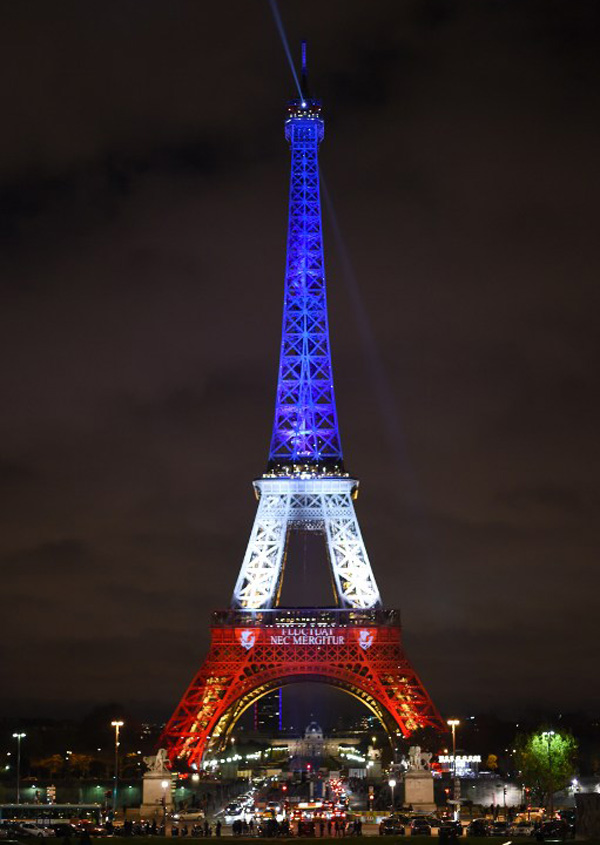
Photo: Stephane De Sakutin/AFP
SC: If setting up pure Islamic regimes was their goal, why attack the West, knowing the forceful reprisal that would follow?
JB: The use of spectacular violence achieved several different objectives. Terrorists have always used violence not as an end in itself but as a weapon to communicate and inspire.
They have three main aims. First, they aim to terrorize an enemy by inspiring irrational fear, which is what terror is.
Second, they seek to mobilise their own supporters, but also send a message to supporters of other competing military groups that they should switch loyalties.
And finally, they seek to polarise. Because a polarised environment is one in which extremism will thrive.
Secondary objectives would be to weaken the economies of enemies so they are less capable of striking back, or indeed to provoke a response from their enemies which will achieve the aim of polarization.
SC: So could you enumerate the key differences between the ISIS and the Al-Qaeda?
JB: The Al-Qaeda had a long-term aspiration to refound the Caliphate but they wanted to do so only when they felt the world's Muslims are prepared for it.
The Islamic State has just gone straight ahead and declared a renewed Caliphate. They assume they will be able to convince the world's Muslims and grow in power and strength and popularity through its example in "real time", if you like.
The Islamic State is also running a chunk of land with 10 million people living on. It has significant revenues from oil and tax and the sale of ancient artifacts and a range of other sources.
It has semi-conventional armed forces that are around 15,000 strong. It has a very different media setup, and much more sophisticated use of social media compared with the Al-Qaeda.
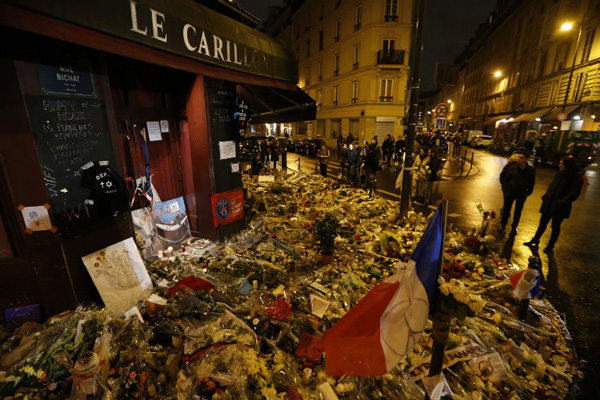
Photo: Thomas Samson/AFP
SC: You've been critical of the West's response to the 9/11 attacks - how it played into the Al-Qaeda's hands; how the West overstated the power of the Al-Qaeda. What mistakes could happen out of knee jerk reactions now?
JB: There were many counter-productive decisions taken by western policy makers after 9/11 that in retrospect look poor. But many lessons have been learnt, including about how to articulate the problem.
After 2005-2006 particularly, there's been a much more reasonable approach. President Obama, for one, has been a more reasonable decision maker than his predecessors.
In some ways, new problems have come out of the failure of the Arab Spring, and out of particular factors in Iraq and Syria, some of which are a direct result of the America intervention in Iraq in 2003. But some are not.
The ISIS, like all Islamic militants, thrive where there is no governance. The vacuum created by the civil war in Syria, coming at a time of increased sectarian politics in Iraq, created a toxic mix which allowed the ISIS to expand in ways they might not otherwise have done.
The regional powers in the Middle-East have also played a significant role in the overall situation. Greater powers such as Russia and the US have to agree on a common position on the future of Bashar-al-Assad and the opposition in Syria.
It's simplistic to blame the ISIS on the failures of western policy making post 9/11. Islamic militancy is a problem that goes back decades before 9/11, into the '90s, the '70s, the '60s, even beyond. We can talk for a long time about the deep roots of Islamic militancy. But it's not a recent problem.
Also it's worth noting that countries like India and China have not interceded at all in this fight against Islamist militancy. Yet Indian commentators are often extremely critical of the US. It has to be collective responsibility.
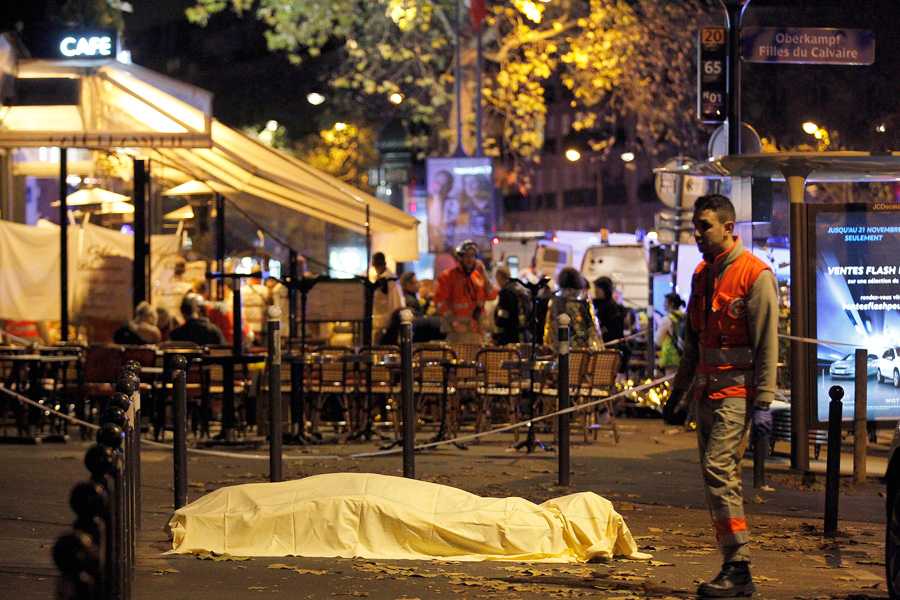
Photo: Thierry Chesnot/Getty Images
SC: In this context, at least one can say India has not sided with Saudi Arabia through thick and thin in the interest of oil politics.
JB: Of course India plays oil politics! Where does India's oil come from? Indian oil comes from the Gulf, Iran and Saudi Arabia.
And who has preserved the security for the Saudi state and other major oil producers and kept the Gulf open for 50-60 years? It's the US.
Without US power, there would be no oil flowing into India. It's an Amercian battlefleet that's stood guard and kept the trade routes open. If the US fleet retreated from the Gulf, oil prices would skyrocket.
SC: I understand you're irritated by the overstatement in some Indian television debates you've seen on the Paris attacks. But in the past, you've been critical of this yourself. So can you talk about the spectrum of circumstances that has created and emboldened the ISIS?
JB: I'll say again it's simplistic to call it a reaction to western policy. They are a product of a much broader phenomenon and global issues. To blame the whole of Islamic militancy on the West seems to me an absurd reduction.
SC: Sure. But a recent Guardian article spoke of leaked CIA documents which showed that America knew or believed a Salafist principality was being created in Syria. But they allowed it to happen, perhaps even supported it, as a push-back on Assad.
JB: It didn't actually. That was one possible reading, but it certainly isn't what it said. And it wasn't a policy document but an intelligence assessment.
One of the obvious examples I can give is Osama bin Laden. He did not receive any aid from the US. That is a historical fact. It is a myth that Bin Laden was created by America.
But the idea has stuck in the popular imagination. In truth, bin Laden received aid from wealthy donors in Saudi Arabia and other Gulf countries.
The CIA gave no training or weapons or anything to Arab fighters in Afghanistan. They received all their funding from the Gulf and supporters from the Islamic world.
This is just one symptomatic example of the deep desire - understandable desire in some ways - to blame the whole thing as a response to western policy.
SC: What do you count then as the roots of the ISIS? In your book you say the roots are not even the 1990s, but the '60s and '70s. Can you explain this?
JB: First, to come back to your question around what the West has done wrong: There has been a whole series of mistakes. The US invasion of Iraq in 2003 is certainly a contributory factor. But, having said that, another significant contributory factor was probably the withdrawal of US troops in 2011. Both of these were errors.
But are they sufficient in themselves to contribute to the creation of the ISIS? No.
ISIS would not have existed without the civil war in Syria. It would not have existed without Prime Minister Nouri al-Maliki's sectarian policies pushing Iraqi's Sunnis into Sunni extremism between 2009 and 2014. It would not have come about without the catastrophic failure of the Iraqi Army to perform its patriotic duty.
It was also helped by the fact that the ISIS or its predecessors received significant assistance from Assad at an absolutely critical moment.
So the ISIS is a product of a weak local state. It is also a function of, if you want to go further back, Saudi-Wahabi prosleytization of the Islamic world which reaches back to the 1960s.
Anwar-Sadat was assassinated in 1981; the Hezbollah was bombing Lebanon in the early 1980s. Those are the first real elements of modern Islamic militancy, and their roots go back another 10-15 years.
So you have to take a long and broad view. Within that, foreign policy errors by the West are significant, but by no means the entire, source of Islamic militancy.
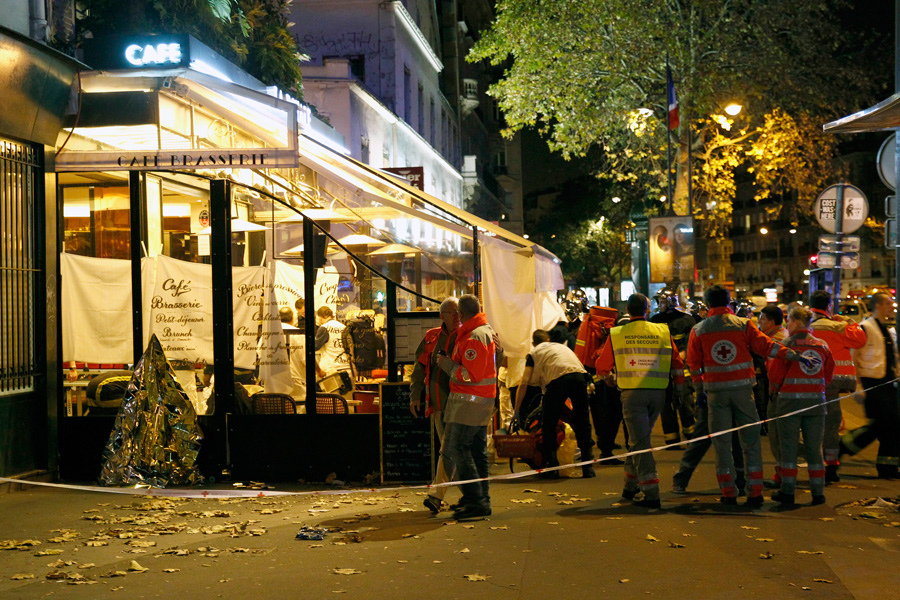
Photo: Thierry Chesnot/Getty Images
SC: Let's move away. There is now some talk about the possible beginning of a 'third world war'. Is this the kind of rhetoric you would caution against? President Hollande said he saw the Paris attack as an "act of war" and the response would be "pitiless".
JB: I think rhetoric that uses the term "world war" is extremely problematic. One major lesson we have learned from the last 15 years is that using that kind of language doesn't help.
Terrorists want to use that sort of language, they want to be dignified with the idea that they are fighting a "war", that even if they are shooting harmless, unarmed 20 year-old kids at a concert, it is somehow an act of battle, that they are combatants.
It's clear the escalated rhetoric backfired badly 10 years ago. This attack has to be framed as an act of criminality. They are criminals after all, because they conducted an act of murder, an act of great violence that contravened the existing laws of any civilized country. So they should be dealt with through the criminal justice system.
You don't need a Guantanamo Bay, you don't need special courts. There are laws that are perfectly adequate to deal with this kind of event. In fact, I hope the state of emergency in France is lifted as soon as possible, as it is an admission of defeat that they have had to suspend basic democratic rights.
SC: There will be an inevitable impact on the migrant crisis. Europe will tighten its borders. Won't this further complicate the situation, create more faultlines?
JB: It is clearly going to have an impact. It would be silly to pretend it wouldn't. It would absolutely strengthen those in the West who don't want to admit refugees in large numbers, and that's exactly what these attacks were meant to do.
It's meant to polarize. The last thing the Islamic State would want is for these governments to look humanitarian, and open and welcoming of Muslim populations.
One of the reasons these operations are launched is to create an environment where any kind of relationships and positive interaction becomes impossible. It would be a triumph for them if that is allowed to happen.
SC: What explains the socio-profile of the kind of people who are joining the ISIS, which is so extreme that even the Al-Qaeda is uncomfortable with it?
JB: The Al-Qaeda is uncomfortable with it because the ISIS brand of violence doesn't serve their objectives. As for the kind of people joining up, there are all sorts of motivation.
'Al-Qaeda is uncomfortable with the ISIS brand of violence as it doesn't serve their objectives'
Extremism is much like many other social activities. It is abhorrent and morally inadmissible, but the actual mechanics of radicalization or of how young people get drawn into it is not dissimilar to the way they get drawn to drugs or petty crime gangs.
It works through peer networks, through examples of people who are known to them - often brothers or someone one looks up to. There's also the lure of money and adventure and belonging.
But it is also important to acknowledge that the principles and ideologies that feed Islamic militancy have also scaled in recent years since 9/11. Ideas about other Muslims being decadent, about the West being immoral, about the corruption of liberal woman, about the West being set on the destruction of Islam, about the supposed vanquished crusader - the proliferation of this thought has become much more widespread in a variety of western countries in the last few years. This is a real problem and has to be tackled if radicalization has to be tackled.
But my final point is all of these problems have to be considered sensibly, reasonably and intelligently. Resorting to slogans and shouting about global confrontations or exaggerated threat perceptions is not going to be helpful.
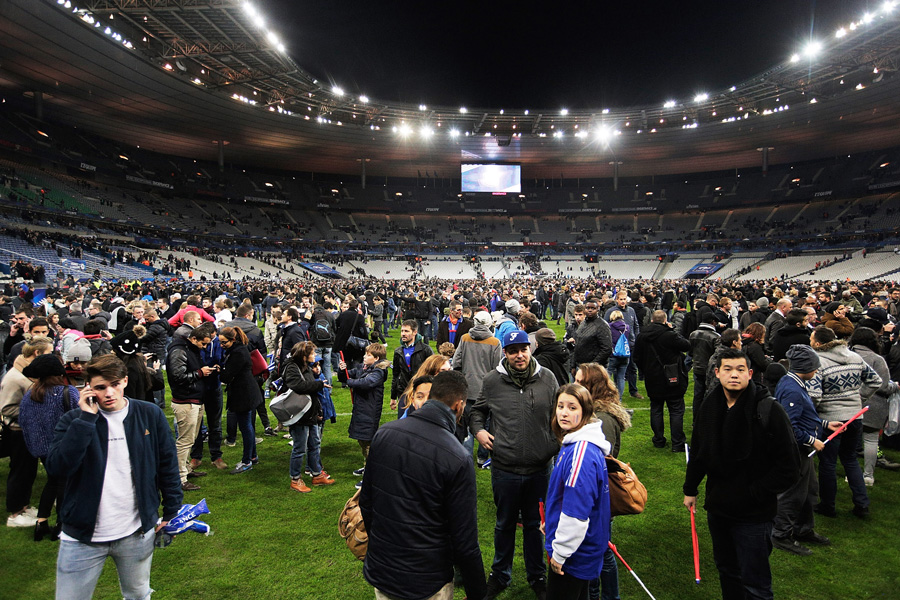
Photo: Adam Pretty/Bongarts/Getty Images
SC: Global powers are bitterly divided over the fate of Assad. Is that going to be key to the way the ISIS challenge can be thwarted?
JB: I don't think it boils down to a binary question. The way to stabilize the situation does not involve simply sustaining Assad, who has killed 200,000 of his countrymen while in power, and eradicating ISIS.
'The solution can't be simply to sustain Assad. He had killed 200,000 of his countrymen while in power'
There has to be diplomatic will and effort to find more complex solutions which will involve certainly concessions by both those who are pro-Assad and those who are anti-Assad, but which might help bring peace.
SC: Why is France a particularly reviled target for Islamists in Europe?
JB: Part of it is because they have played a role in bombing the ISIS. The ISIS also has the capability to hit in France that they don't have elsewhere.
Equally, there is the fact that France is a country which has taken a powerful and important stand about its own secular values and has not been willing to compromise. So, it is a standard-bearer in many ways for the kind of western culture which the ISIS detests.
SC: Personally speaking, do you think that's a wise position? That they refuse to entertain multiculturalism but rather insist that everyone live by French values?
JB: Personally, I prefer the more subtle British model, which strikes me as a more helpful way of establishing a situation where all citizens of a country can feel included, while remaining mutually respectful to each other.
'The fundamentalists here are ISIS, not the French. And it is important to remember that'
They don't insist that people in the rest of the world live by French values incidentally. The fundamentalists here are ISIS, not the French, and that is very important to remember.
First published: 20 November 2015, 6:35 IST
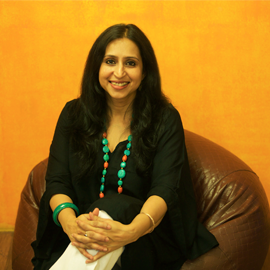





![BJP's Kapil Mishra recreates Shankar Mahadevan’s ‘Breathless’ song to highlight Delhi pollution [WATCH] BJP's Kapil Mishra recreates Shankar Mahadevan’s ‘Breathless’ song to highlight Delhi pollution [WATCH]](https://images.catchnews.com/upload/2022/11/03/kapil-mishra_240884_300x172.png)

![Anupam Kher shares pictures of his toned body on 67th birthday [MUST SEE] Anupam Kher shares pictures of his toned body on 67th birthday [MUST SEE]](https://images.catchnews.com/upload/2022/03/07/Anupam_kher_231145_300x172.jpg)


_in_Assams_Dibrugarh_(Photo_257977_1600x1200.jpg)



